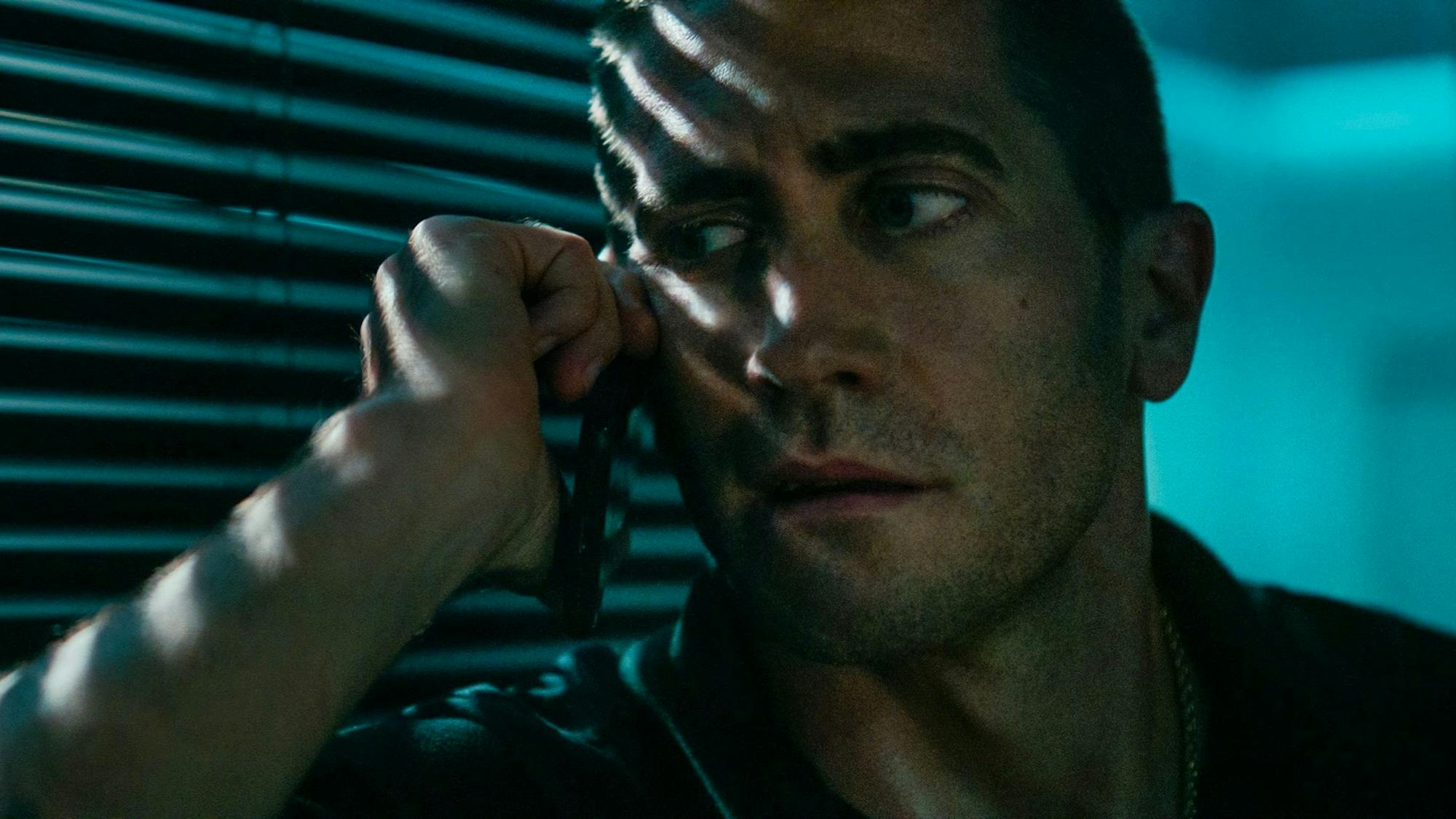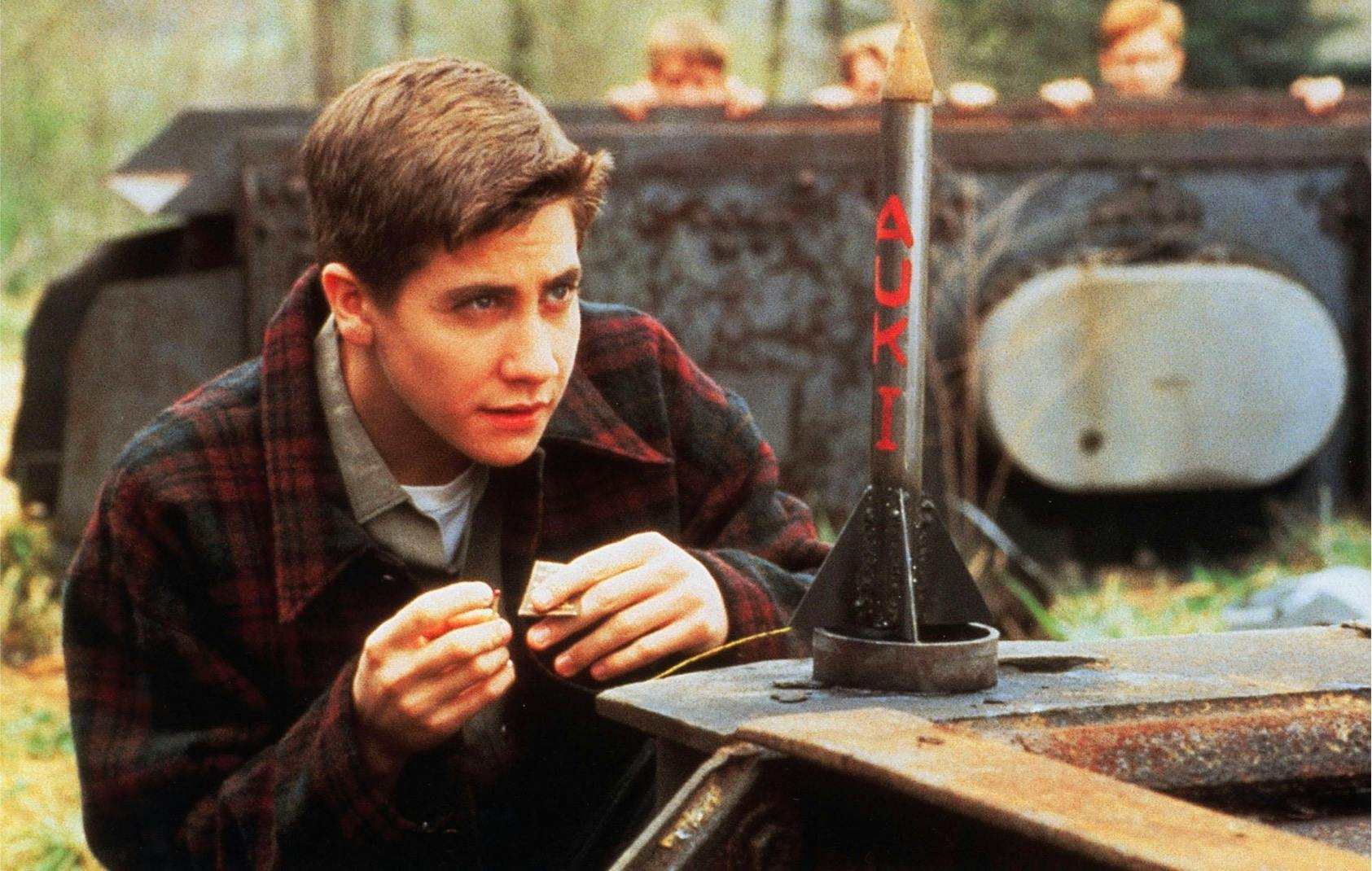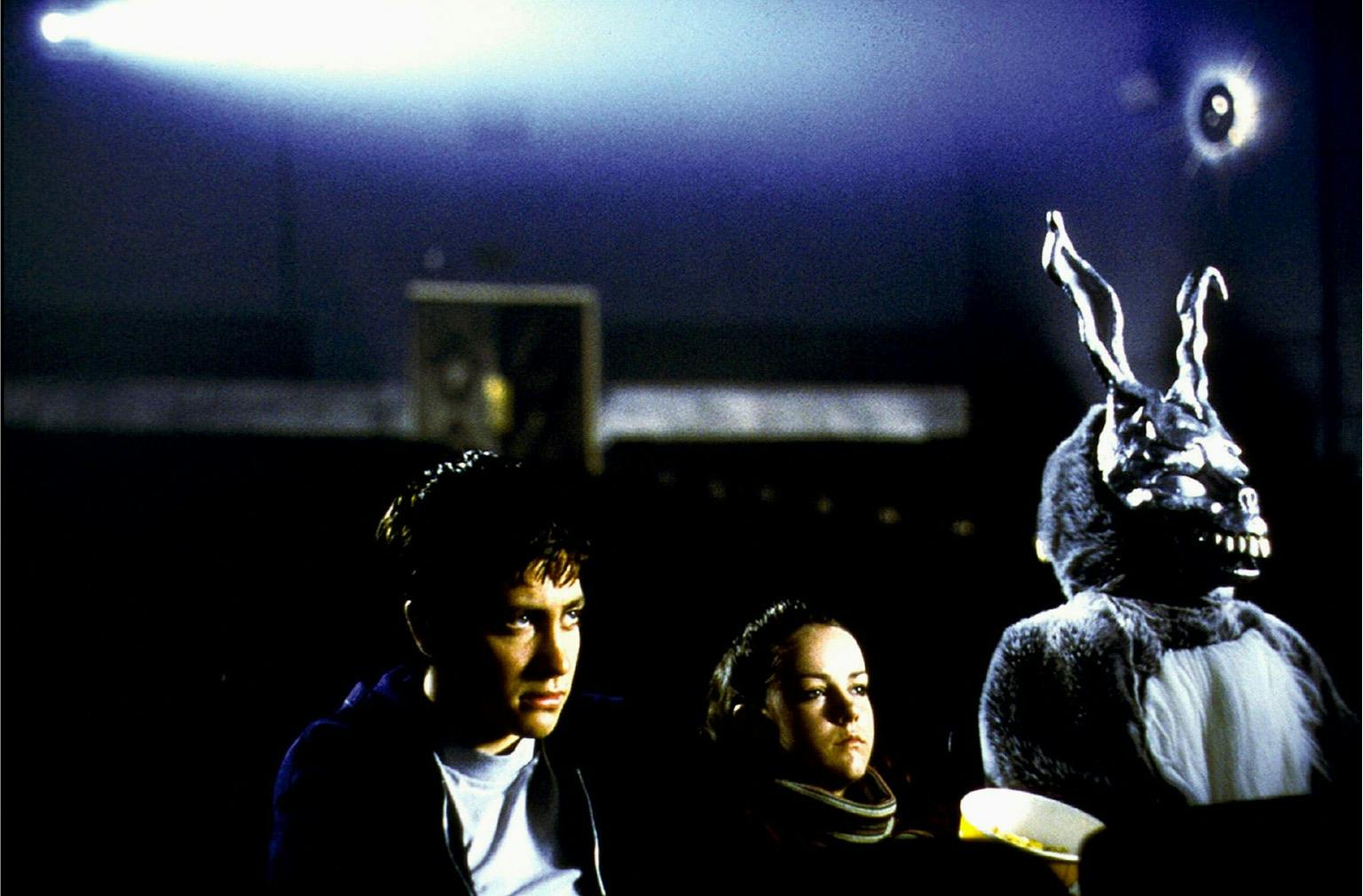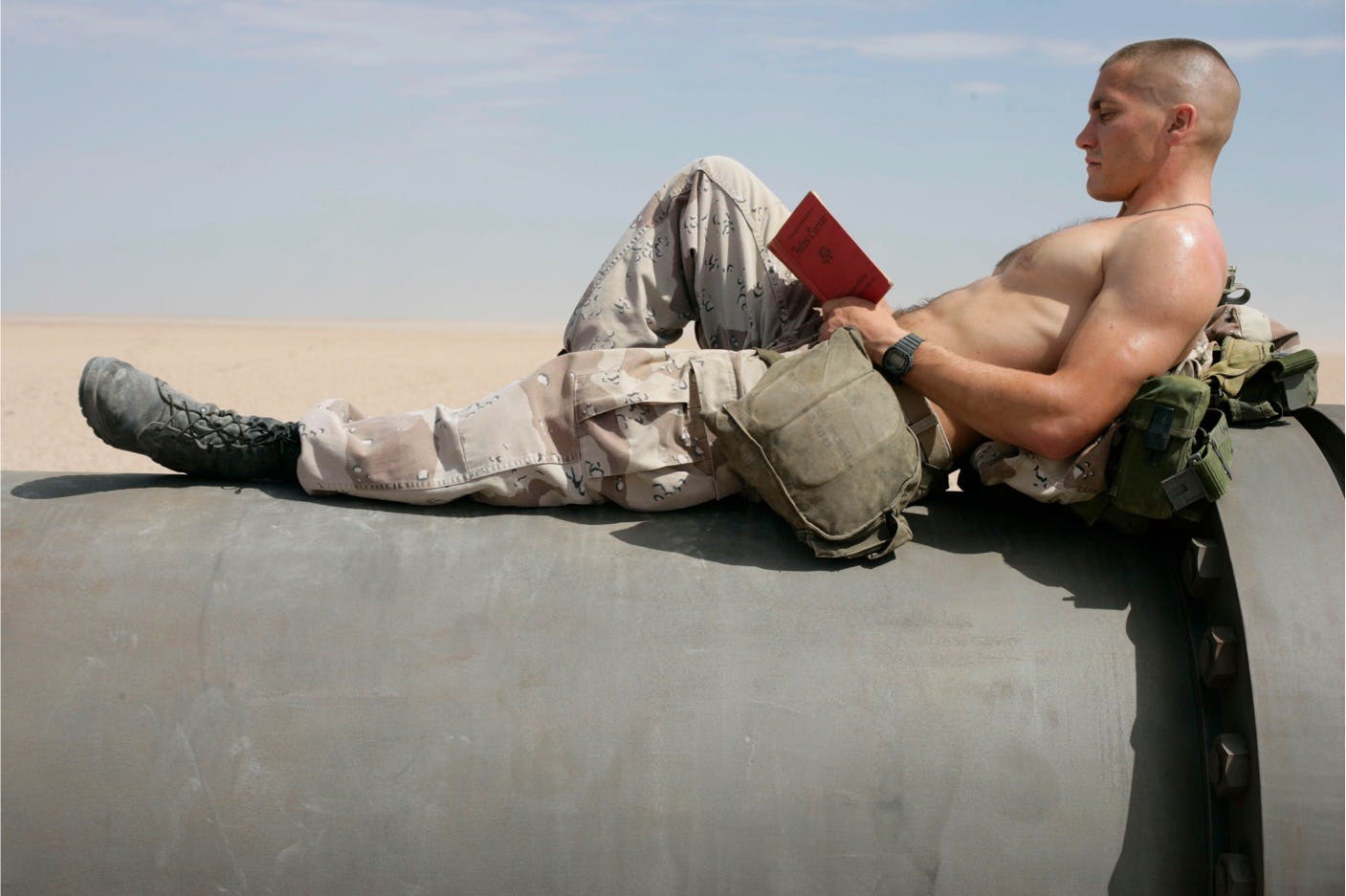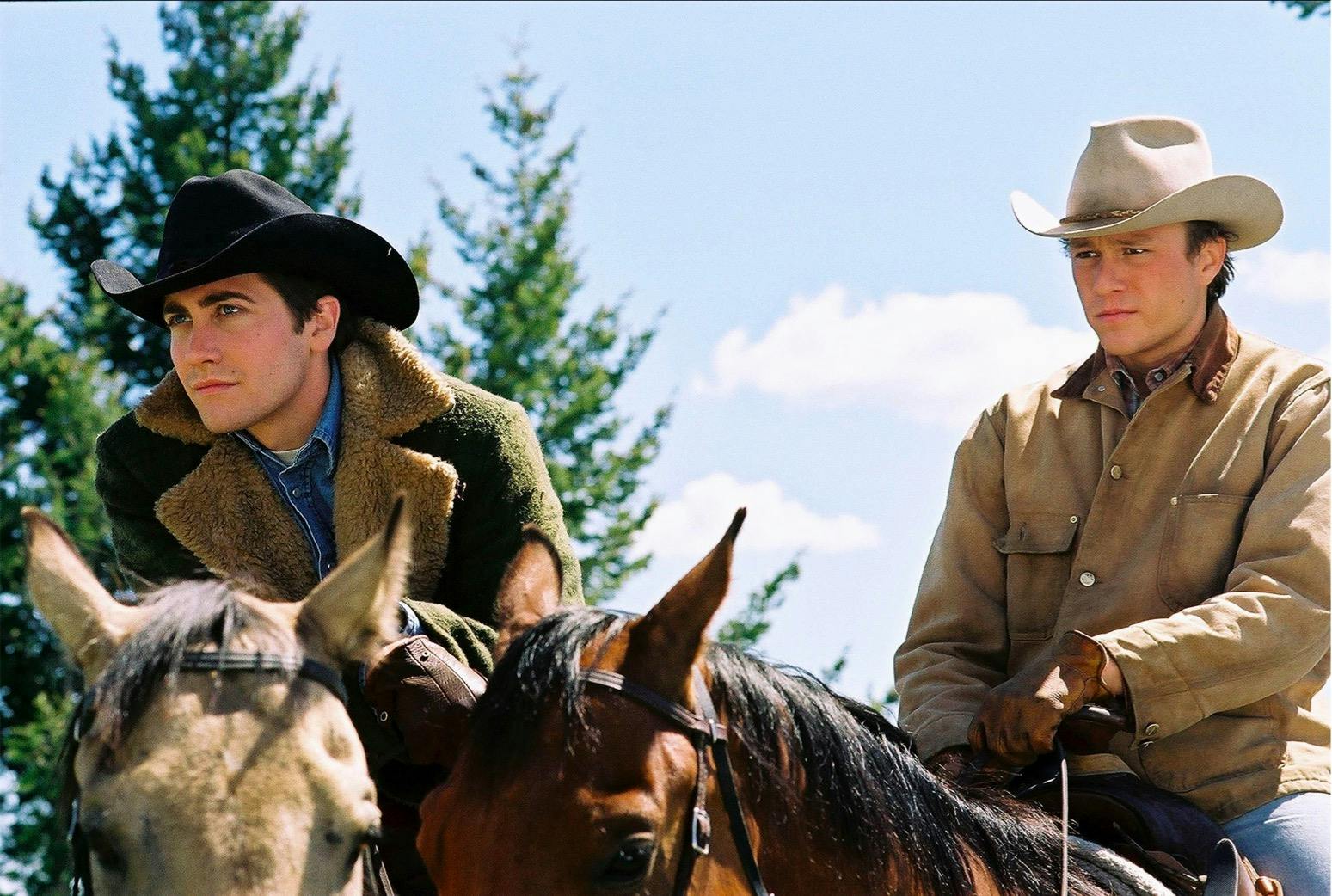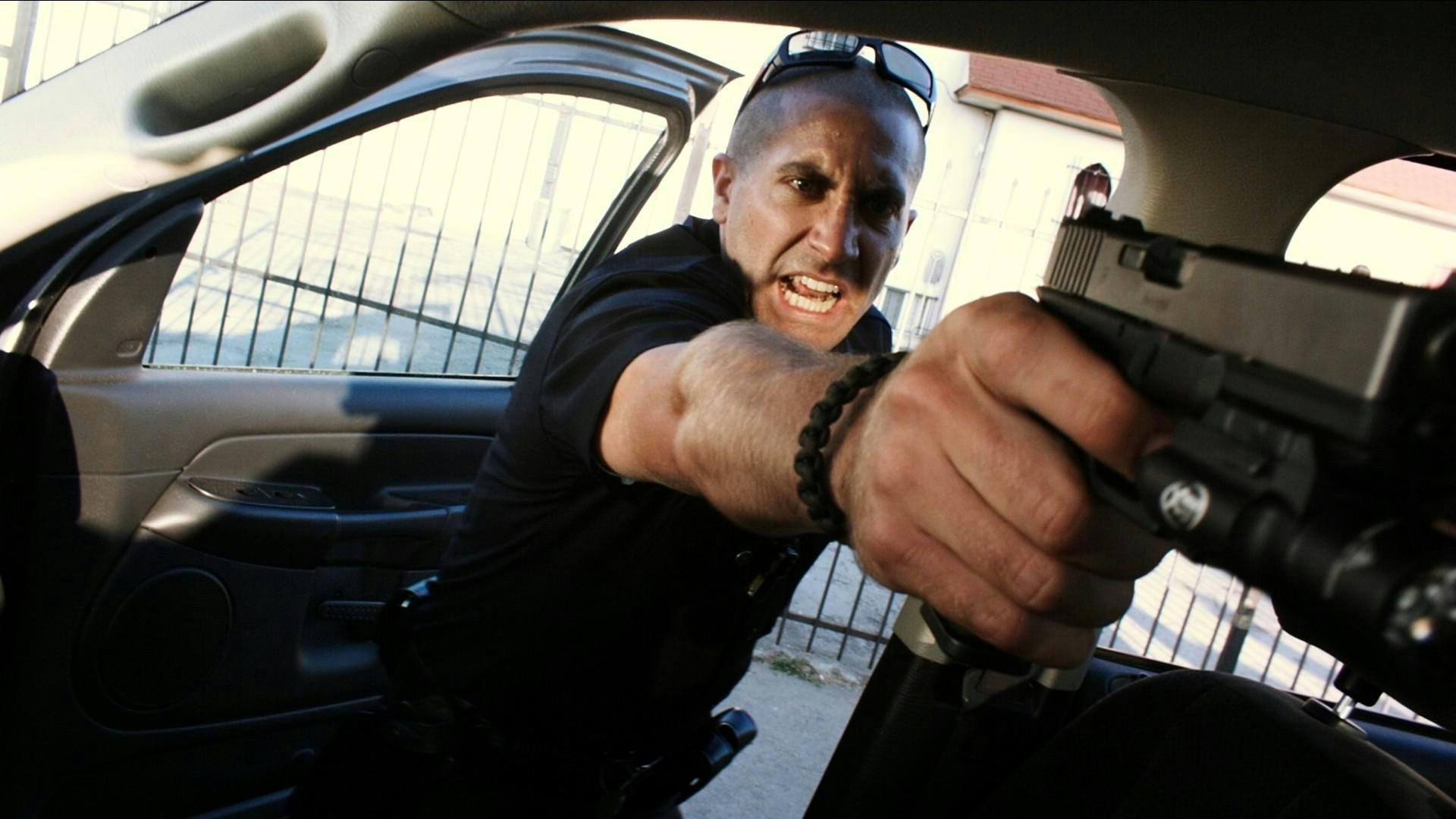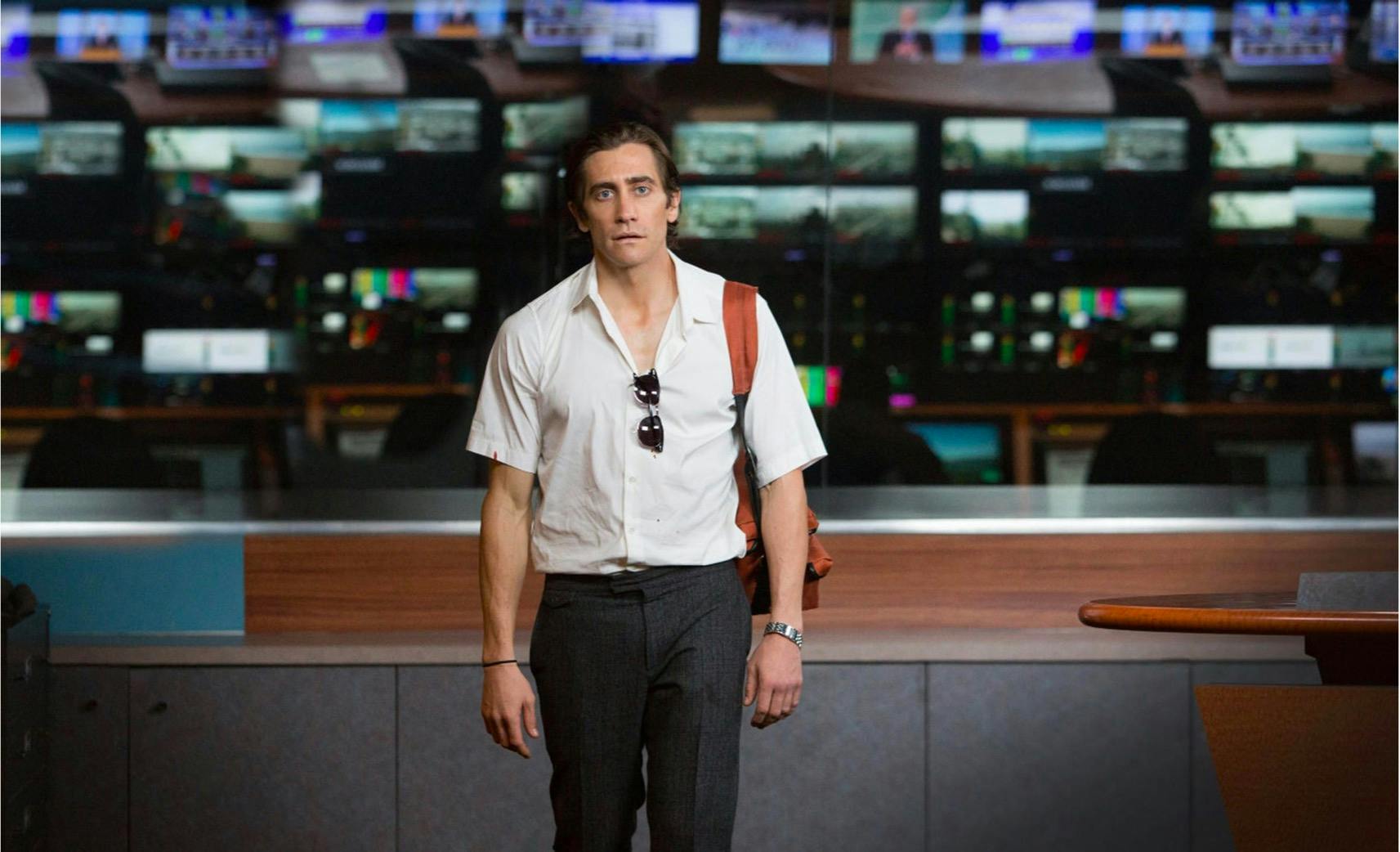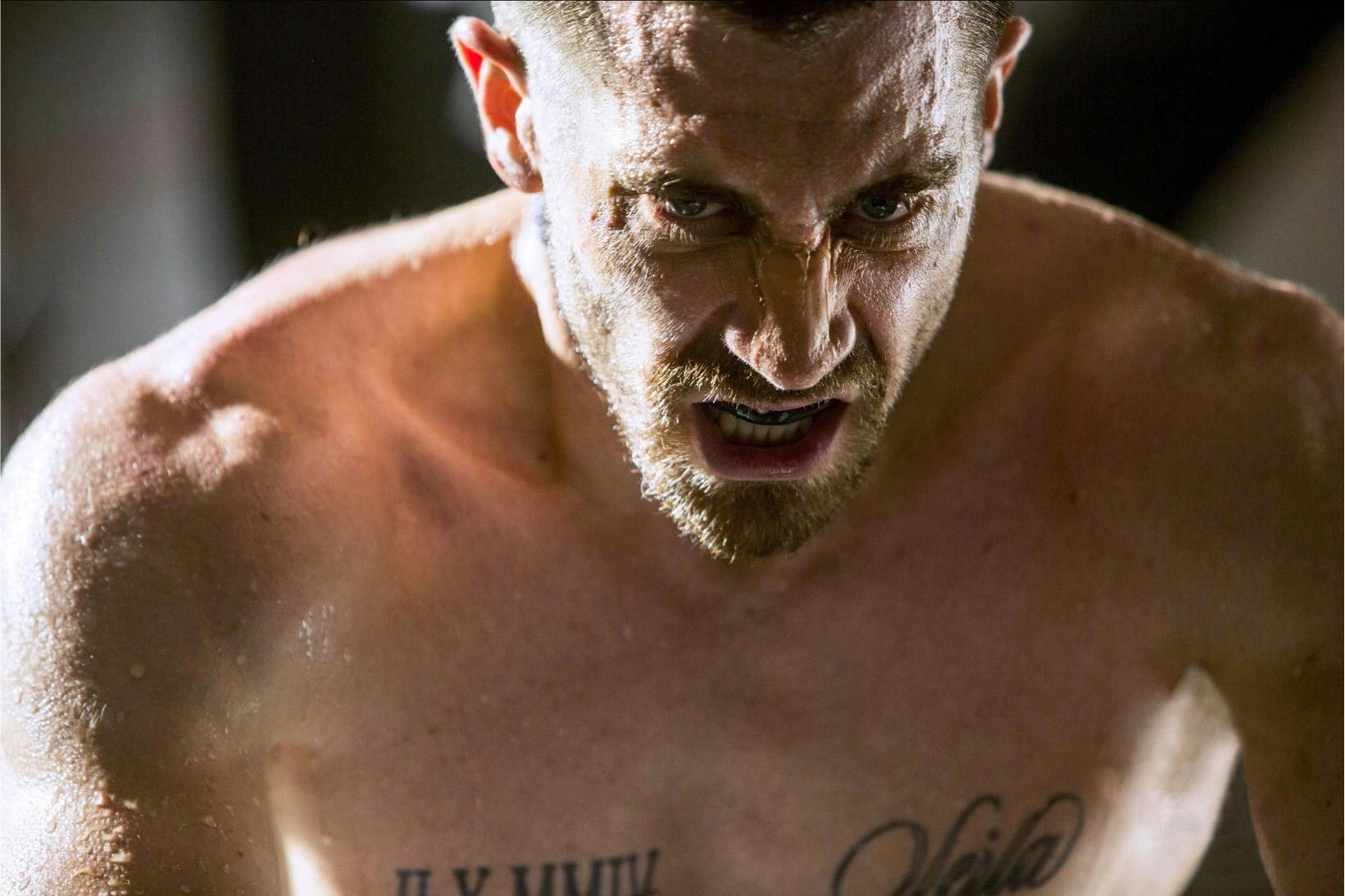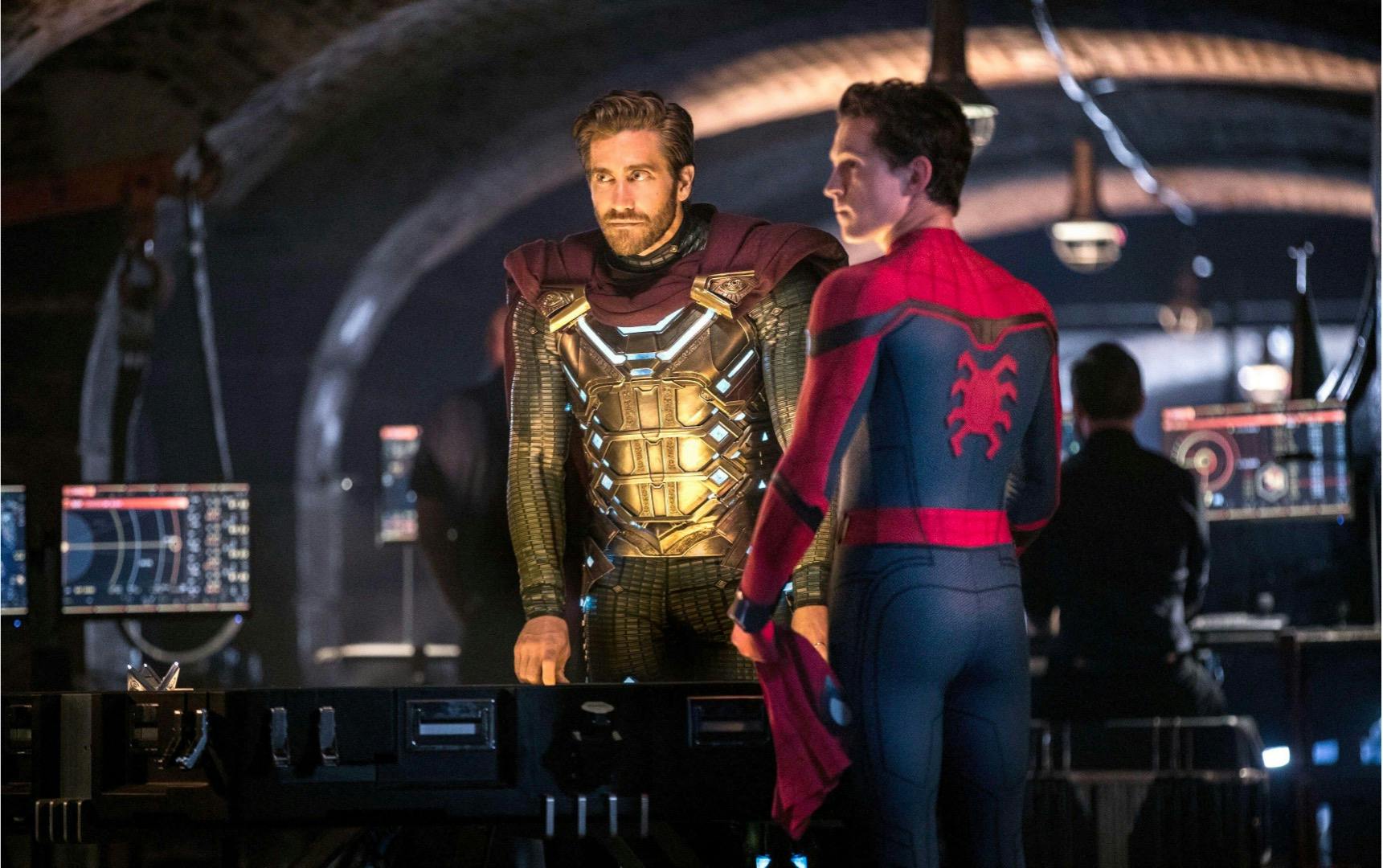The star of Antoine Fuqua’s thriller, The Guilty, talks about making a movie on the systems behind some of today’s biggest problems.
Jake Gyllenhaal spent much of 2020 just like the rest of the world, using his newfound free time to perfect recipes in the kitchen (in case you didn’t know, the man was once a sous-chef). The actor also managed to serve up the year’s most riveting white-knuckle thriller, The Guilty.
In The Guilty, the Oscar-nominee reteams with his Southpaw director Antoine Fuqua for the story of 911 call center operator Joe Baylor, who overhears a potential kidnapping. After fielding nearly a dozen increasingly intense phone calls over the course of a few hours, it becomes clear that nothing is what it seems. Gyllenhaal’s skill is on full display here; the actor holds our attention throughout, a remarkable feat given that, for most of the film, Joe is essentially a man at a desk, on a phone call, alone.
Gyllenhaal has long since established himself as one of Hollywood’s most gifted and exciting talents. Following his days as a child actor (who didn’t love October Sky?) and his breakthrough role in the indie cult favorite Donnie Darko, Gyllenhaal moved on to a busy career toggling between dynamic art house roles and big commercial bets. The actor’s memorable credits are nearly endless: Jarhead, Brokeback Mountain, End of Watch, Enemy, Nightcrawler, Nocturnal Animals, Okja, Wildlife, Velvet Buzzsaw, Spider-Man: Far from Home— and that’s not even taking into account his Tony Award-nominated work on Broadway.
The Guilty is a film that Gyllenhaal has wanted to make since 2018, when he saw writer-director Gustav Möller’s 2018 Danish thriller Den Skyldige premiere at the Sundance Film Festival. “Something about it hit me,” Gyllenhaal says of the captivating premise. “Something in me responds to pieces where the imagination of the audience is an enormous part of the experience. In movies, more and more, we’re shown everything, taken by the hand and guided. I love the idea of a movie that took a lot of the elements of cinema as we know it away and made us participate even more.” Gyllenhaal and his producing partner Riva Marker acquired the remake rights to the film (which took home the world cinema audience award at Sundance) for their production banner, Nine Stories.
Gyllenhaal then recruited Fuqua to direct, and the two embarked on a lightning-fast, COVID-safe shoot amidst the pandemic. Together, but from separate locations, they created a masterfully-tuned ticking clock of a movie that speaks to some of the most topical issues of the day. “You’re dealing with someone who is in the middle of all our systemic issues,” Gyllenhaal says of his character. “I think the reason both Antoine and I wanted to make the movie was because of what it says about our systems and the preconceptions we all have about each other.”
Krista Smith: This film, The Guilty, is a wild ride from the second you turn it on. I was riveted. And somehow, I read somewhere that you shot this movie in less than 10 days. Take me through that.
Jake Gyllenhaal: When I sent Antoine [Fuqua] the script, I said to him that I had a vision of making this movie in a really short period of time. I think the only way you can get a filmmaker of Antoine’s stature is to tell them, “Here’s a really interesting script. And you only have five days to shoot it. Do you want to do it?” We’re similar in that way; you push us to a limit and we enjoy it. He called me the next day and was in, not only because of this story but also because of the idea of shooting it in a very short period of time. We both got off on that idea, the challenge of it.
We ended up filming the whole movie in nine days. Given that we were shooting in Los Angeles in October of 2020, every day was an impending lockdown. Because of that we scheduled it within an inch of its life. We decided we were going to shoot it in five acts, 20 pages each — Antoine shot simultaneous cameras, three on me. We had actors all over the country and the world; they would call in at all hours of their day, and we’d roll 20-minute long takes over video conferencing. It was an absolute mess the first two days. That’s how we made the movie.
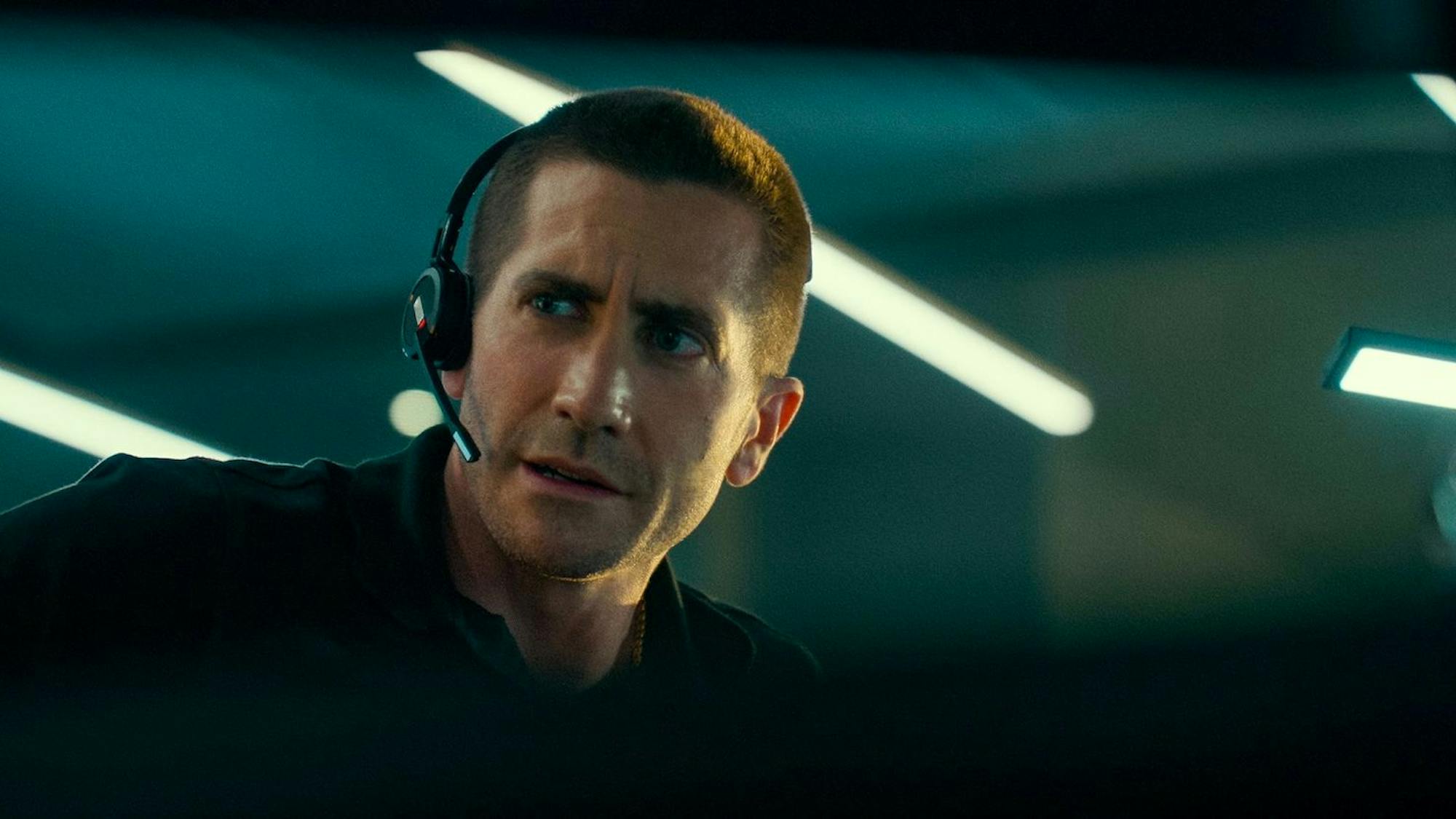
Joe Baylor (Jake Gyllenhaal) in The Guilty (2021)
Courtesy of Netflix
I was completely immersed for the whole 90 minutes of this film.
JG: Before this worldwide pandemic, I was on stage, and I was doing a monologue for a year, first off-Broadway, and then on Broadway. And I was basically in a spotlight telling this story for an hour on stage, and there was this feeling when the audience’s imaginations came alive, where I disappeared and the story that I was telling came to them, and then their stories started mixing in with the one I was telling. And it was palpable; I could feel it when it happened. I love that feeling; we have so much power inside of our own minds and in the use of our own imagination, and that is really what cinema is about: the tension outside of the frame.
And I think we’re so used to seeing everything, wanting to see everything, needing to see everything, that when we’re asked to use our imaginations it’s almost like being brought to an overgrown garden. Like, “Oh shit, I thought this was gone. I haven’t been here for years. Oh, wow, there are lots of flowers.” You know? That’s what it feels like, to me at least.
This film is like theater in a way, because of the intensity and because this whole movie rests on your performance. There really isn’t a relaxed moment. How was it to sustain that kind of intensity and focus? Even though you’re in one space, it’s a very physical performance.
JG: When a movie takes place in a 911 dispatch center, there’s already an inherent tension. I knew just sitting in that chair — with calls ringing in the background and the audience anticipating which call’s going to come in next — would allow me a big space to play around in. I didn’t have to create much, frankly. I had to do a lot of listening. That’s what we’re doing as an audience, and that’s what my character is doing.
In terms of his journey, I think he’s a character that finds himself in a tough position from the jump and is denying a lot of things in his own life. And as it goes for all of us, the universe teaches you the lessons that you need to learn — his lessons start coming at him that night. So I said to myself, “This is a solid story. Stay within these moments, and they will show you what they’re supposed to be,” very much like a 911 operator would do.
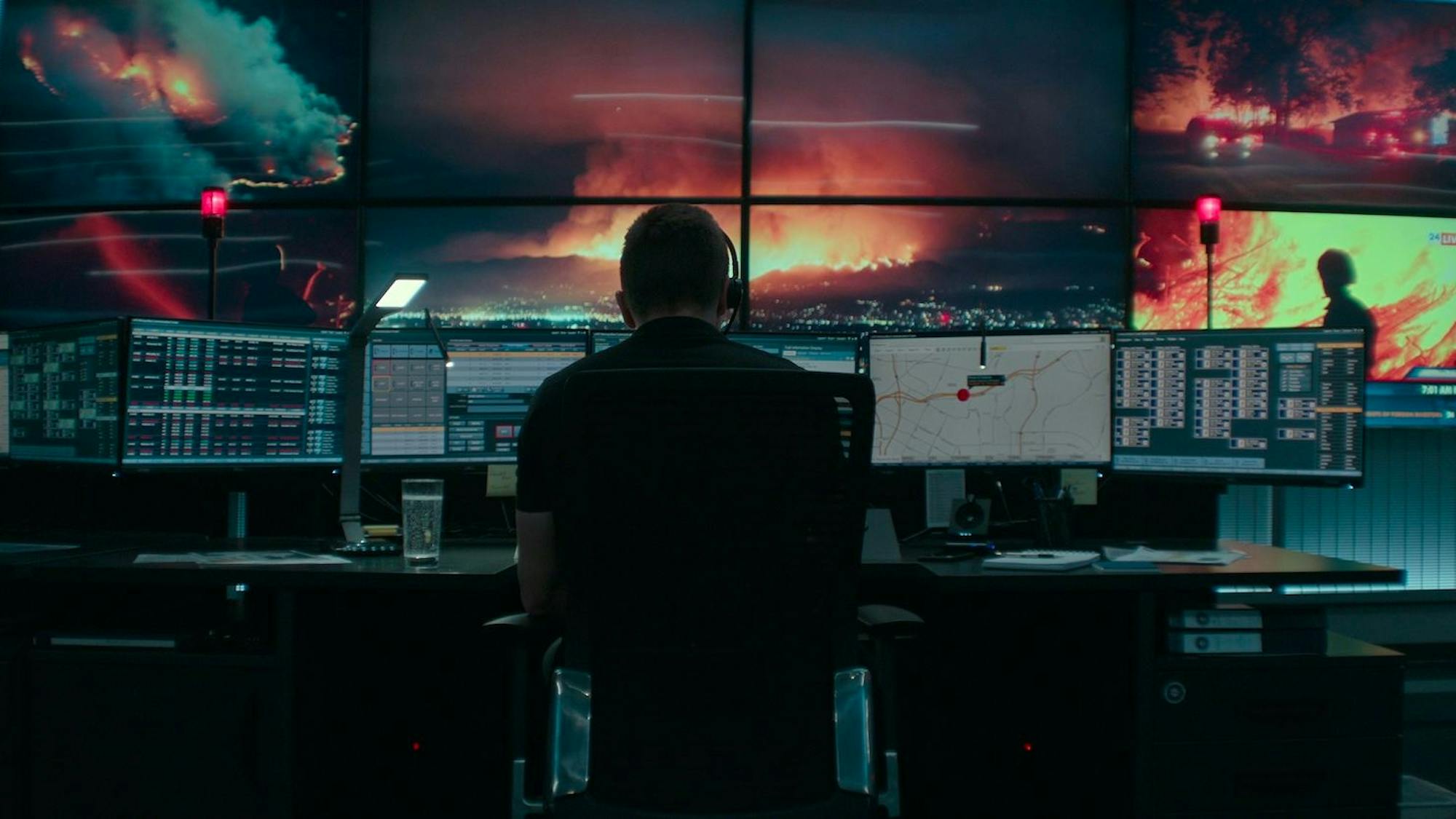
Yours was one of the first movies to shoot during the pandemic. What was that like?
JG: The weird part was that someone near Antoine had tested positive for COVID the Friday before we were supposed to start shooting, which meant he had to go into quarantine. For a moment, we thought we wouldn’t be able to make the movie, but then he tested negative after four days. So, we made this plan where we hardwired him in a van that had three monitors a block away from where we were shooting. He directed the entire movie from this van, guarded by his friend who was an ex-Navy SEAL to make sure no one came near the van. He came in and out of it masked, and that was it. So, it was this experience of him being very, very far away from me, where we were only in contact via sound. We FaceTimed every once in a while. I would climb over this ladder and stand at the top of the wall sometimes, and he’d come out of his van — we would talk like Romeo and Juliet in between setups. So, he was having a similar experience to what I was having; we were both really isolated. I think that added to the process. The fact that we were making a movie in that period of time, we were all so grateful to be there, but all the tension of the time was in it too.
I love that feeling; we have so much power inside of our own minds and in the use of our own imagination, and that is really what cinema is about: the tension outside of the frame.
Jake Gyllenhaal
You recently turned 40, which is such an important milestone. You’ve lived enough to understand a lot of things, but you still have so much left to learn. What scares you at this point in your career? What’s left to conquer?
JG: I want to start to write my own words and create my own projects. It doesn’t mean I don’t want to continue to express and interpret other people’s things, but I think that’s very safe. I’ve learned that over the many years that I’ve been lucky enough to do this. I’ve actually said to myself before, “Oh, I’m being really brave because I’m doing this thing.” I almost convinced myself, but really, I was only making a movie. What’s so brave about that? What I love about getting older is that as I get scared, as I feel terror, fear, I recognize that the desire is to run away from it, to avoid it. That has never been successful for me. I know in my bones now that you turn around and you look right at it. It always deepens me.
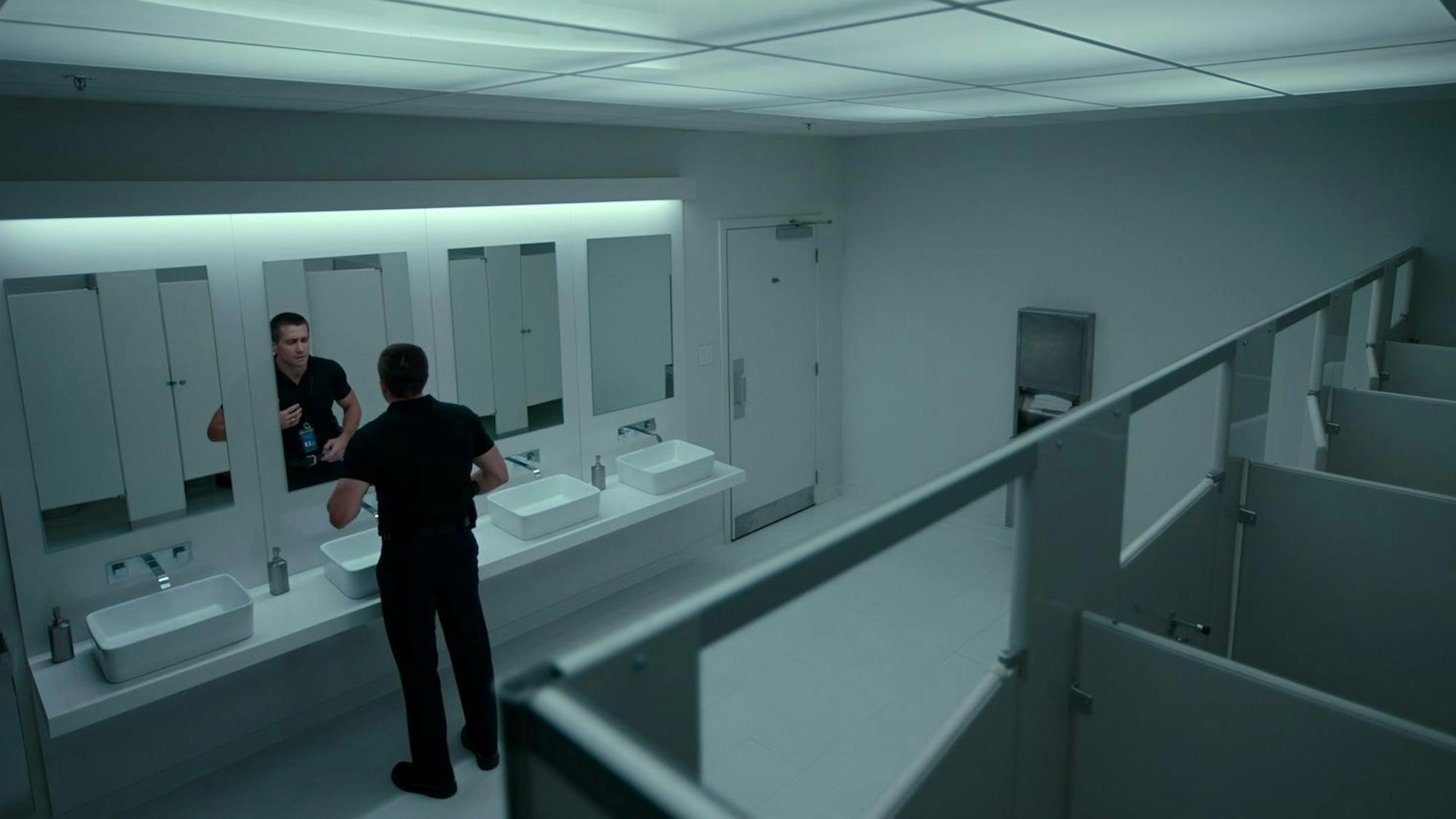
You really have been doing this so long. You’ve been through it.
JG: I had no other choice. I felt like there was a path for me down this way, so I followed it. I often think back to my first experiences of performing, and I think of the joy that I felt before any of the other stuff — it was just great, great joy. I remember going into auditions and knowing I had an edge inside the words, knowing that somehow, almost like a skier, I knew I could get down that mountain faster. It was a confidence that I can’t really put into words. I just knew it was for me, so I continued to do it, against all the odds. To sustain a career is mind-boggling sometimes — to try and figure out ways in which to move and change. I think that bravery, for anyone, is being able to find and be proud of what they’re excellent at. It’s like what Jay Z says, which I love, “Everyone has a genius level of talent.” It’s just a matter of whether we’re willing to listen to it and take pride in it. We live in a world where there are these standards that define what makes you successful. As I get older, the people I admire the most are the ones who take great pride in what they are meant to be doing. Being an artist of some kind is a dream, but there are so many things to be.
Your sister Maggie is also having a giant moment with her film, The Lost Daughter. You were there supporting her at the premiere, and I remembered that when you were much younger, you had said to me, “You have to meet my sister. She’s so talented.” I just loved that moment of a little brother and his older sister coming full circle. And now, both of you hitting your stride creatively, it feels like you’ve both never been better in what you’re doing.
JG: Maggie has the talent of a small country. It felt so good to be there with her at Venice. I premiered Brokeback Mountain there and she’s been there so many times. Then to be there — with her having directed a film — I was so happy and excited for her.
I look at your dossier of what’s coming up, and there’s more good stuff happening with Netflix. But what’s happening on stage? I didn’t get to see you in Sunday in the Park with George, and I’m really upset about that.
JG: We were supposed to do Sunday in the Park with George in London last summer. That didn’t happen, but we have a little plan up our sleeve. I wouldn’t give up on it just yet. You may be able to see it soon.
